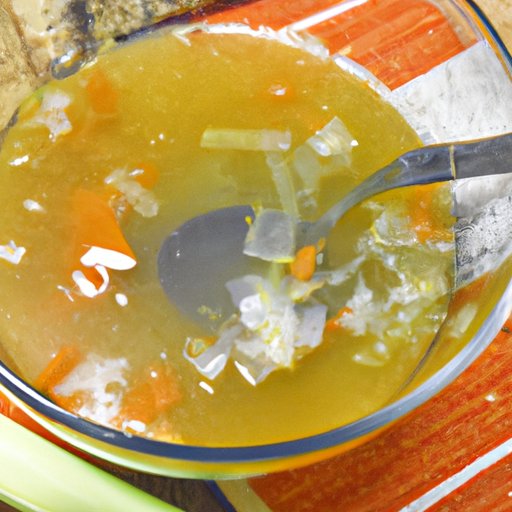
I. Introduction
Boils, also known as furuncles, are painful, red, pus-filled lumps that form on the skin. They are caused by a bacterial infection and occur most commonly on the face, neck, armpits, and buttocks. Boils can be uncomfortable and unsightly, and if left untreated, they can lead to more serious infections. This article offers a comprehensive guide on how to get rid of a boil and prevent it from coming back.

II. Home Remedies for Boils: Simple Solutions to Get Rid of Pesky Skin Infections
Home remedies are a convenient and effective way to treat boils. Tea tree oil, for instance, has antibacterial properties that can help kill bacteria on the skin and reduce inflammation. Turmeric can also be effective in treating boils due to its anti-inflammatory properties. Epsom salt baths can help draw out the pus and alleviate pain and soreness.
When using home remedies, it is important to remember to follow the recommended dosage and use caution when applying them to the skin. Always dilute essential oils and test for skin sensitivity before use.
III. Boil Treatment 101: How to Make Your Boils Disappear with These Effective Tips
Basic boil treatment methods include warm compresses, which can help increase blood flow to the infected area and speed up healing. Drainage is another effective method that involves using a sterile needle or lancet to puncture the boil and allow the pus to drain out.
In treating large or severe boils, it is important to seek medical attention. A healthcare professional may prescribe antibiotics or recommend surgical drainage in severe cases.
IV. From Warm Compresses to Antibiotics: The Best Ways to Treat Boils Naturally and Medically
When determining the best treatment option for boils, it is important to consider both natural and medical options. While natural treatments can be effective, medical treatment may be necessary in more severe cases that do not respond to home remedies or in individuals with compromised immune systems.
If the boil spreads, fever develops, or if the boil is located on the face, groin, or near the spine, treatment with oral antibiotics may be necessary. Topical antibiotics can also be effective in treating smaller boils on the skin.
V. Boil No More: Say Goodbye to Boils with These Top Prevention and Treatment Methods
Preventing boils involves maintaining good hygiene and minimizing exposure to bacteria. Washing your hands regularly, avoiding sharing towels or personal items, and keeping wounds clean and covered can all help prevent boils from developing.
Lifestyle factors such as stress and poor nutrition can also contribute to the development of boils. By maintaining a healthy lifestyle and managing stress levels, you can reduce your risk of developing boils.
VI. Natural Boil Removal: A Comprehensive Guide to Get Rid of Boils Naturally and Quickly
Creating natural remedies at home can be a cost-effective and safe way to treat boils. Turmeric and neem leaves can be turned into a paste that can be applied directly to the boil. Castor oil and garlic can also be effective in reducing inflammation and killing bacteria.
When using natural remedies, it is important to use caution and test for any adverse reactions before applying to the skin. Consulting with a healthcare professional before starting any new treatment is also recommended.
VII. Boils Be Gone: Expert Advice on How to Get Rid of Boils Fast and Prevent Them from Coming Back
If you experience frequent boils or large boils that do not respond to treatment, it is important to consult with a healthcare professional. Dermatologists and other medical professionals can offer medical treatment options and expert advice on preventing boils from recurring.
VIII. Conclusion
Boils can be uncomfortable and unsightly, but with the right treatment and preventative measures, they can be effectively managed. Whether using home remedies, natural treatments, or medical interventions, it is important to prioritize good hygiene and take action promptly at the first sign of a boil. And always remember, if in doubt, consult with a healthcare professional to address any concerns.




